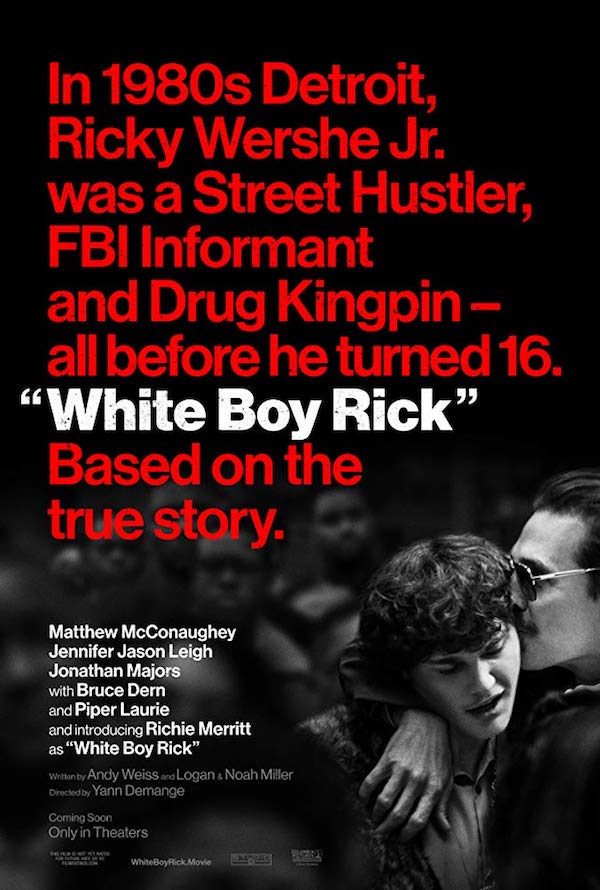Movie Breakdown: White Boy Rick (Noah)
Pre-Screening Stance:
If you’ve seen Yann Demage’s harrowing, beautiful story of a English soldier caught in the violence-embroiled streets of Belfast during The Troubles, then you’re excited for White Boy Rick. I have, so I am.
Post-Screening Ramble:
White Boy Rick has all the makings of a good movie but they’ve been dropped, broken into a thousand pieces and then haphazardly arranged to resemble whatever was there in the first place. Based on a true story, White Boy Rick follows Richie “White Boy Rick” Wershe Jr., a tough kid growing up in a poor family in Detroit in the ’70s who stumbles into a life of gun-running, gangsters and drugs. His father (Richie Sr., Matthew McConaughey in full redneck tear-jerker mode) is a small-town crook with the cops breathing down his neck, and White Boy Rick has to turn informant on his newfound family of Detroit crooks to ease the pressure. And this, the slow, constricting crush of his three worlds – family, crime and cops – could’ve been a great movie. Especially under Demage’s (and his cinematographer Tat Radcliffe) eye for composition (a scene of a car spinning out in the snow, made me loudly intone, “Wow!”) and the ability to turn even the smallest character into a memorable one (Bruce Dern as salty, forgetful granddad, we’re looking at you). Call it the crush of sticking to the true story, or just a screenplay pulled and stretched and shoved back together again in some order that seemed feasible, but White Boy Rick never really knows when to stop. By the time Rick Jr.’s been shot (for reasons unknown) and learned he’s a father, the films already feeling long in the tooth, but Demage tries to stuff another whole story in the space between the fourth and fifth act, and it’s a story that isn’t so different from the one he’s already told in the preceding four acts. And it just keeps going – more and more of Rick’s life unspooling on the screen, the themes of family above all else slowly submerging under whatever else Demage is trying to say. Which, well, is a lot. The tone jumps from darkly comic to street cool to dark family flick every ten minutes or so, and though the director’s grasp of the individual tones is impressive, the combination strips the more powerfully emotional moments and makes the subtly comedic ones so off-kilter. There’s much to enjoy in White Boy Rick, but maybe, it’s too much.
One Last Thought:
Richie Merritt, the kid Demage supposedly found in a Baltimore public school is remarkably good for the weight he’s asked to carry as a non-professional actor. You can see the sinew sometimes – he moves like he’s in front of a camera – but the emotions he’s able to churn out of his every-man mug are pretty incredible.


